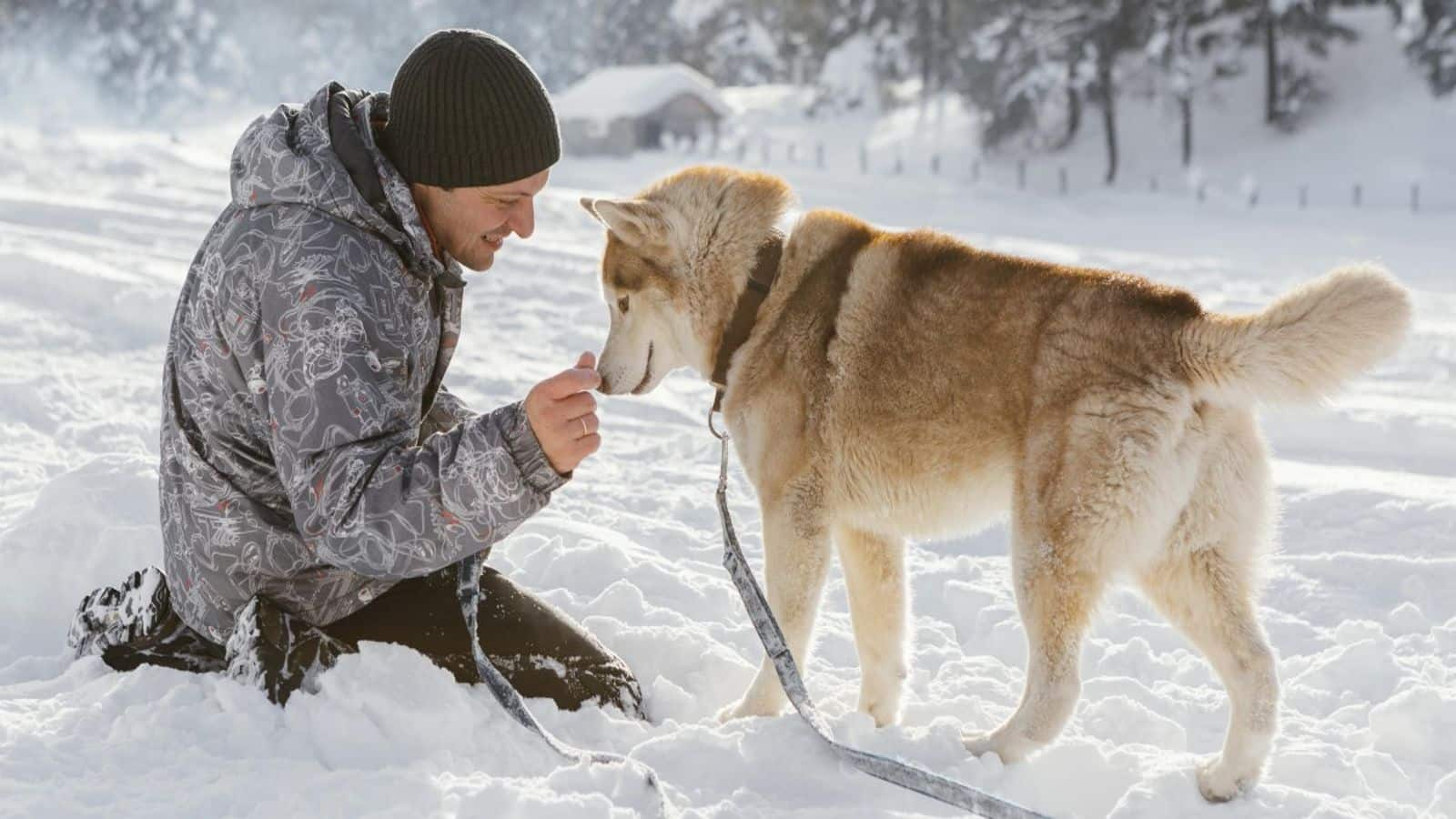
How to help your Siberian Husky thrive in the cold
What's the story
The Siberian Husky, a breed celebrated for its remarkable endurance and capacity to flourish in Arctic conditions, is both resilient and full of energy. These dogs hail from Northeast Asia, where the Chukchi people originally bred them for sled pulling and as companions. Their dense double coat, striking eye color variations, and amiable nature have made them favored pets worldwide.
Tip 1
Optimal shelter for Huskies
Despite their affinity for the chill, Siberian Huskies need shelters that safeguard them against the harshest conditions. A suitable doghouse must be well-insulated and spacious enough to allow comfortable movement. It should stand elevated from the ground to prevent moisture seepage and feature a windproof entrance that repels drafts, thus ensuring the Husky's abode remains warm and dry even in extreme cold.
Tip 2
Dietary needs in cold climates
In the frigid climates they thrive in, Siberian Huskies exhibit increased metabolic rates, necessitating a diet that fuels their warmth and energy. A nutrient-rich balance of proteins and fats is essential. To ensure their health and vigor, monitor their food intake closely, adjusting portions in line with their varying levels of physical activity to maintain an ideal weight.
Tip 3
Grooming for insulation efficiency
Grooming a Siberian Husky is essential for their warmth in cold climates. A weekly brushing routine is important to remove dead fur and help spread the coat's natural oils, which are vital for insulation. It's critical to avoid shaving or cutting their fur too short, as this reduces their built-in protection against the cold, potentially affecting their ability to stay warm.
Tip 4
Exercise adaptations for Huskies
Siberian Huskies need consistent exercise, regardless of the cold. They are built for enduring longer activities in frosty climates, which are crucial for their health. It's essential to equip them with protective gear like booties when they're out in the cold. This protects their paws from injuries caused by salted pavements and ice, ensuring their well-being during winter months.
Tip 5
Health monitoring in winter months
During the winter, vigilance over your Siberian Husky's health is crucial, as the cold can worsen conditions such as arthritis. Scheduling regular veterinary visits is key for early detection of potential health issues. Additionally, it's important to frequently inspect their paws for any signs of damage, like cracks or sores, which can result from the harshness of ice and cold weather exposure.